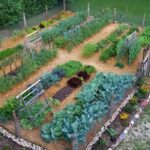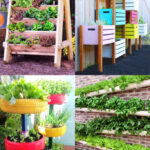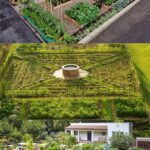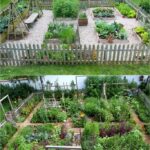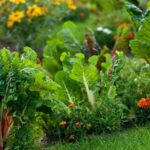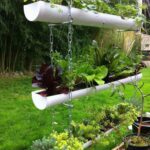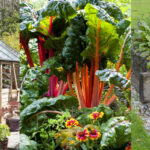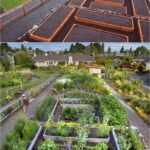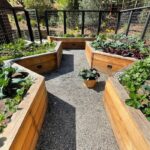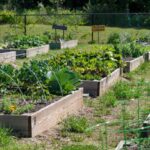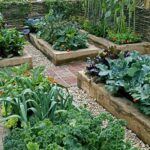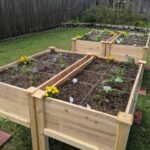One great idea for a veggie garden is to create raised beds. Raised beds are beneficial for a number of reasons, including better drainage and soil quality control. They also make it easier to maintain the garden and provide a clean, organized look. Raised beds can be made from a variety of materials, such as wood, stone, or even recycled materials like old pallets.
Another creative veggie garden idea is to incorporate vertical gardening. Vertical gardening involves growing plants upwards instead of outwards, which can be a great space-saving solution for small gardens. You can use trellises, stakes, or even hanging baskets to grow vine plants like tomatoes, cucumbers, and beans vertically. This not only saves space but also makes harvesting easier.
Companion planting is another great veggie garden idea to consider. Certain plants grow well together and can even enhance each other’s growth and success. For example, planting marigolds alongside tomatoes can help repel pests, while planting basil near tomatoes can improve their flavor. Research companion planting combinations to create a thriving, symbiotic garden.
Incorporating a variety of plants in your veggie garden is also a fun and practical idea. Instead of sticking to just one or two types of vegetables, try growing a diverse range of plants. This not only adds visual interest to your garden but also helps to attract beneficial insects and pollinators. Mix in some herbs, flowers, and even fruits for a bountiful and vibrant garden.
Consider adding some creative elements to your veggie garden, such as decorative plant markers, colorful pots, or even a DIY garden sign. These personalized touches can give your garden a unique and inviting feel. You can also create pathways or seating areas in your garden to make it a relaxing and enjoyable space to spend time in. Get creative and have fun with designing your veggie garden!
Lastly, don’t forget to incorporate sustainable gardening practices in your veggie garden. Use organic fertilizers and pest control methods, collect rainwater for irrigation, and compost your kitchen scraps to enrich your soil. By practicing eco-friendly gardening techniques, you can create a healthy and thriving garden that benefits both you and the environment.

